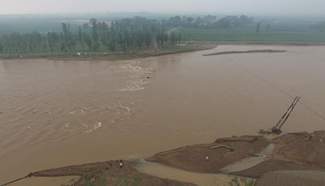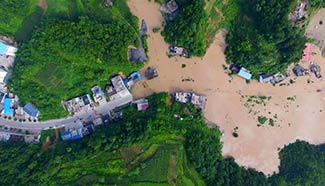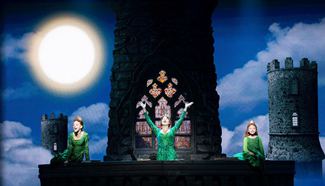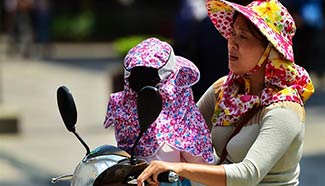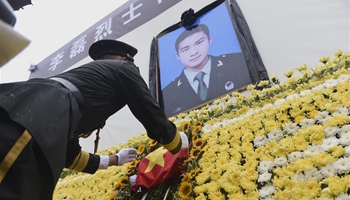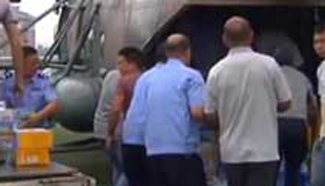by Xinhua writers Ren Liying, Zhou Yan
TANGSHAN, Hebei, July 22 (Xinhua) -- Wang Ying cherishes a photo from her teenage years. In the picture, she is wearing a track suit and a big smile.
"I was a straight-A student and a good basketball player," said Wang, 68, in her home city of Tangshan, about 200 kilometers from Beijing.
As a teenager, she was captain of a youth basketball team that won gold at a championship in Hebei Province in the 1960s.
Like her peers, Wang was unable to go straight into university after she finished secondary school in 1966. The year marked the beginning of the 10-year Cultural Revolution, and the national college entrance exam was suspended.
Thanks to her athletic talent, Wang secured a job teaching physical education classes at a middle school in Tangshan. She soon married and had a daughter.
Her cozy nest fell apart when a 7.8-magnitude earthquake leveled Tangshan at 3:42 a.m. on July 28, 1976. The quake claimed more than 242,000 lives. About 7,200 entire families died in their sleep.
Wang, alert even in her sleep, got up in time to throw herself against a wardrobe as it was falling and threatening to hit her husband and their five-year-old daughter.
"I stood steadfast between the wardrobe and the bed and felt the furniture crushing my back... I was never able to stand up again," Wang said Friday at her daughter's apartment in downtown Tangshan.
She was among 3,817 Tangshan earthquake survivors to be permanently confined to a wheelchair, and is one of 822 paraplegic survivors still alive.
Wang was grateful to be alive for her husband and daughter, but she considered suicide countless times, driven by fits of acute pain that tortured her once or twice an hour, and threatened to haunt her for the rest of her life.
The pain, known as phantom limb pain, is common in paraplegics and amputees. "I always had a towel at hand, and would bite it when the pain attacked."
In 2006, she underwent an operation on her numb legs that ended her pain. "It was on June 1, China's Children's Day," she said. "When I woke up, I remembered clearly how I used to celebrate the day as a child."
WILL POWER
"Physical pain can be treated, or at least fade with the passage of time, but for most paraplegic patients, the hardest battle is to maintain will power and carry on," said Yang Zhensheng, president of a Tangshan-based hospital for paraplegia.
About two years after the quake, Wang Ying suffered another blow. "The national college entrance exam resumed in 1978," she said. "But disabled people like me were not allowed to take the test."
She said her heart hurt when old schoolmates who were far behind her academically were admitted to colleges.
In her hardest days, Wang's former employer offered her a job as a typist. She did her best at the job, happy to be able to earn her own living and help feed the family again.
But a new disaster was soon to strike: her husband divorced her in 1986, leaving their daughter in her custody.
By then, Wang said she had suffered enough to stay calm, be strong and even "take pleasure in pain."
"Right after the quake, I was told that paraplegic patients could survive for only 15 years," she said. "I kept praying over the years for me to live until after my daughter finished primary school, then middle school."
She felt it was a miracle she lived long enough to see her daughter grow up, get married and have her own child.
Wang's grandson was born in 2008, the year Beijing hosted the Olympic Games. "For me, it was a dream come true. In those painful days, when I was on the verge of taking my own life, the only thing that persuaded me to carry on was my dream of seeing the Olympic Games in China -- my love for sports never died."
In her autobiography, "My Account," which is set to be published, Wang described happiness as a tree.
"It is half cast in shadow and half basked in the sun, and gives off fragrance even on moonless nights."

